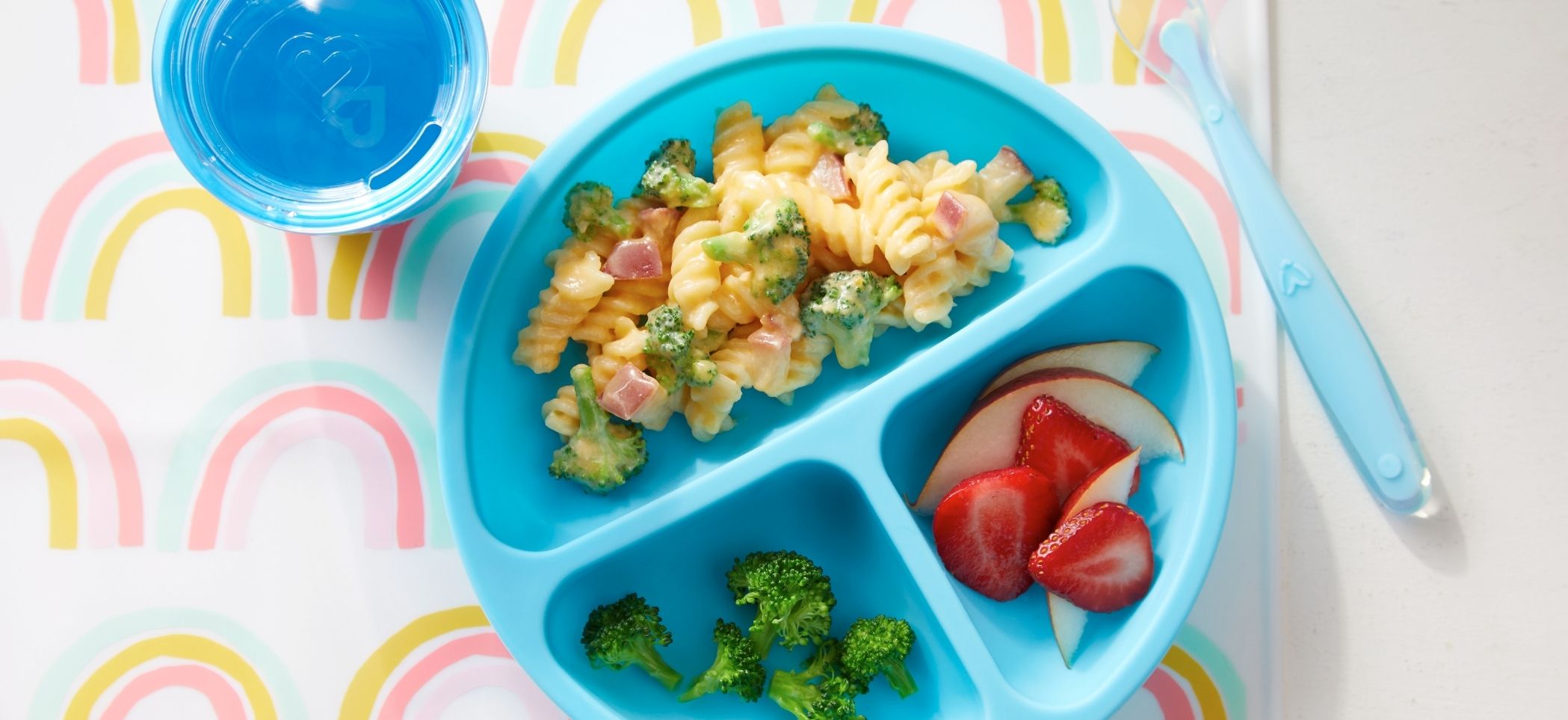The Egg Nutrition Center partnered with Kim Hoban, RDN, CDN, CPT to write this blog post.
The process of introducing solid foods to babies can feel overwhelming and intimidating, but starting with nutrient-rich foods and simple family-friendly recipes can help take the stress away. Fruits, vegetables, healthy fats like avocado and olive oil, as well as proteins like meat, fish and eggs are all good options for first foods. Eggs in particular, which are classified as a nutrient-dense food by the Dietary Guidelines Advisory Committee (DGAC), are easy, versatile and budget-friendly, making them an option parents can feel good about serving.
Not only are eggs a nutritional powerhouse for adults, but because they offer essential nutrients for growth and development, the DGAC recommended eggs as foundational first food for infants and toddlers as well. Plus, eggs provide various amounts of all the nutrients listed by the American Academy of Pediatrics as essential for brain health, including choline, vitamin B12, and protein. Choline, an essential nutrient for brain health and development, is often under consumed by adults and children alike. The Adequate Intake (AI) for choline is 125-150mg daily for babies and 200mg for toddlers up to 3 years old. Just one large egg contains about 150mg of choline to meet those needs!
On top of the nutritional benefits, the DGAC highlighted that early introduction of eggs has been shown to reduce the risk of egg allergies later in life. The Advisory Committee affirmed that current research indicates that introducing peanut and egg, in an age-appropriate form, in the first year of life (>4 months) may reduce the risk of allergy to peanut and eggs. For other potentially allergenic foods, the DGAC reported there is no evidence that avoiding such foods in the first year of life is beneficial.
When it comes to serving eggs to babies, toddlers and young children, think beyond simple scrambled or hard-boiled eggs (though those are great too!) by offering up a variety of nutritious and delicious ways to enjoy eggs. For babies, easy-to-grab options like Banana Pumpkin Pancakes, Avocado and Banana Muffins, and Broccoli and Cauliflower Quinoa Bites are eggcellent choices. Once eggs and peanut-containing foods have been introduced and tolerated, it’s essential to continue offering these foods on a regular basis. This simple Peanut Butter Sweet Potato Souffle is a tasty way for parents to include both eggs and peanuts in one easy recipe.
For toddlers and older kids, get creative with family-friendly recipes that are nourishing and fun for everyone. Getting children involved in the cooking process by creating joyful experiences can help build their confidence and increase the likelihood of trying more new and different foods. Let your kids pick from options like Hawaiian Scrambled Egg Pizza, Baked Cheesy Pasta with Broccoli and Pear, and Pizza Granola Bars. Not only are eggs nutritious and delicious, but they are an affordable and easy way to nourish family members of all ages, from infants and babies to adolescents and adults.

